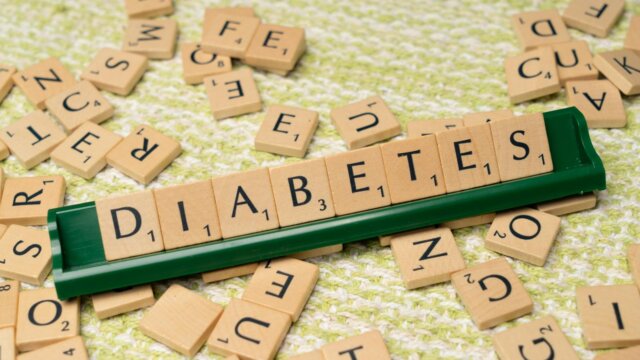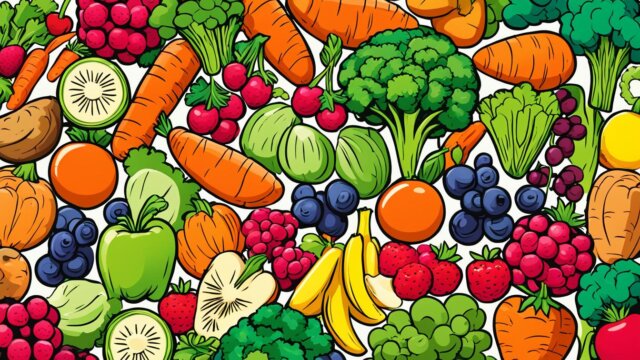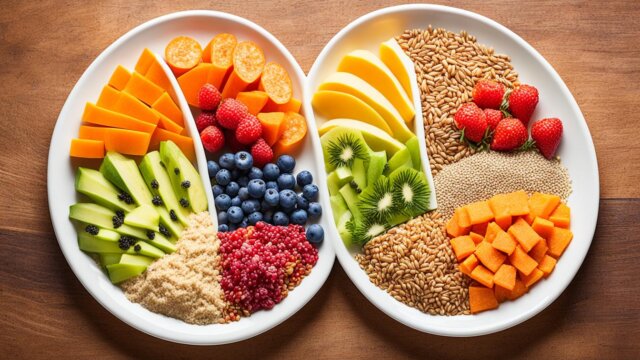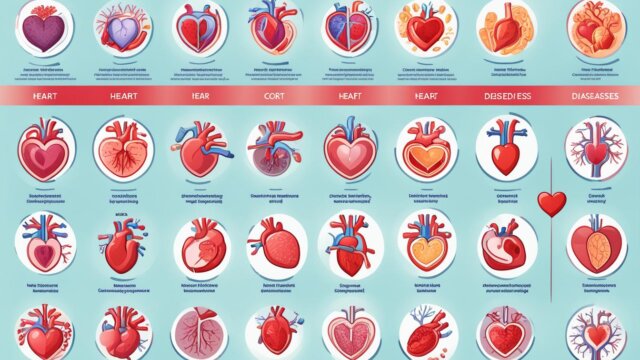FTC disclaimer: This post may contains affiliate links and we will be compensated if you click on a link and make a purchase.
Did you know the average person passes gas up to 20 times a day? Gas is a normal part of digestion, but too much can be uncomfortable. This guide will help you understand and manage gas and gas pains. You’ll learn how to improve your digestion and feel better.
Gas and gas pains are common in many Americans. They can cause bloating, lots of gas, or sharp stomach cramps. Knowing what causes them and how to fix them can really improve your life.
Key Takeaways
- Gas and gas pains are common digestive issues that can be managed with diet, lifestyle changes, and over-the-counter remedies.
- By eating less fiber, avoiding dairy, and skipping sugar substitutes and carbonated drinks, you can ease gas symptoms.
- Products like alpha-galactosidase, lactase supplements, simethicone, and activated charcoal can help some people feel better.
- Small meals, chewing well, and staying active can also help prevent gas and discomfort.
- If you have severe or ongoing gas pains, see a doctor. They can check for other health issues that need treatment.
Understanding Gas and Gas Pains
Gas is a normal part of digestion. It happens when bacteria in the intestines work on undigested food. Passing gas and burping are usual, but too much gas can cause discomfort and pain.
What is Gas?
Most folks pass gas up to 20 times a day. Burping is normal, especially after meals. Eating too fast can make you produce more gas.
Common Symptoms of Gas Pains
Gas pains can make your belly cramp, feel bloated, and full. You might feel pain or discomfort in your stomach. Some health issues can cause too much gas. Small bowel bacterial overgrowth can also lead to excess gas.
Knowing about gas and its symptoms is key to fixing this common issue. By finding out what causes it and using the right strategies, you can ease gas and gas pains.
Statistic | Value |
|---|---|
Most people produce about 1 to 4 pints of gas a day. | |
Most people pass gas about 14 times a day. | |
Passing gas 14 to 23 times a day is considered normal. | |
Gas in the intestine can cause pain and may be confused with heart disease if collected on the left side, or with gallstones or appendicitis if collected on the right side. |
“Understanding the nature of gas and recognizing the associated symptoms is the first step in addressing this common digestive issue.”
Causes of Excessive Gas
Passing gas now and then is normal. But too much gas can be uncomfortable and embarrassing. Some foods and health issues can make you produce more gas and cause pain.
Dietary Factors
Some foods make more gas than others. Foods high in fiber like beans, lentils, and whole grains are hard for the body to digest. This can lead to more gas. Dairy products can also cause gas if you’re lactose intolerant.
Drinking carbonated drinks, chewing gum, and eating too fast can make you swallow more air. This adds to the gas.
Medical Conditions
Some health issues can also cause a lot of gas and discomfort. Conditions like irritable bowel syndrome (IBS), celiac disease, and small intestinal bacterial overgrowth (SIBO) can lead to more gas. These issues can make digesting carbs hard, causing more gas in the large intestine.
Finding out why you have too much gas is key. It could be from what you eat or a health issue. Knowing the cause helps in finding ways to manage the gas and pain.
“Passing gas up to 25 times a day is normal. But if you feel you pass too much gas or it smells bad, it might be a problem.”
Gas and Gas Pains
Gas and gas pains can make life uncomfortable. Passing gas and burping are normal, but severe pain might mean a digestive issue. It’s important to know what causes gas and how to ease it.
Gas pains can cause bloating, pain in the belly, belching, and flatulence. How long gas stays can vary, from a few minutes to hours. Usually, gas pain is not serious and can be helped by changing your diet or lifestyle.
Some health issues like IBS, Crohn’s disease, celiac disease, and lactose intolerance can cause more gas and pain. Doctors might give you medicine for gas problems, like GERD.
If you still have gas pain after trying to change your diet and lifestyle, see a doctor. They can do tests to find out why you have gas. Getting the right treatment can help you feel better and stop future gas problems.
Knowing what causes gas and how to manage it can help you feel better and keep your daily life smooth.
Diagnosing the Underlying Cause
If you’re dealing with ongoing gas and pain, figuring out the cause is key. Your doctor will look at your health history and do a physical check-up.
Medical History Review
Your doctor will ask about your eating habits, how often you get gas and pain, and if you have other digestive issues. This helps spot possible food triggers or health problems that might be causing your discomfort.
Physical Examination
Your doctor will check your belly and listen to your bowels during the exam. If they find something unusual, they might order more tests to find out what’s causing your gas and pain.
These tests could be blood work, endoscopy, stool tests, lactose intolerance tests, or imaging like X-rays or CT scans. Finding the main cause is key to making a good treatment plan and getting lasting relief.
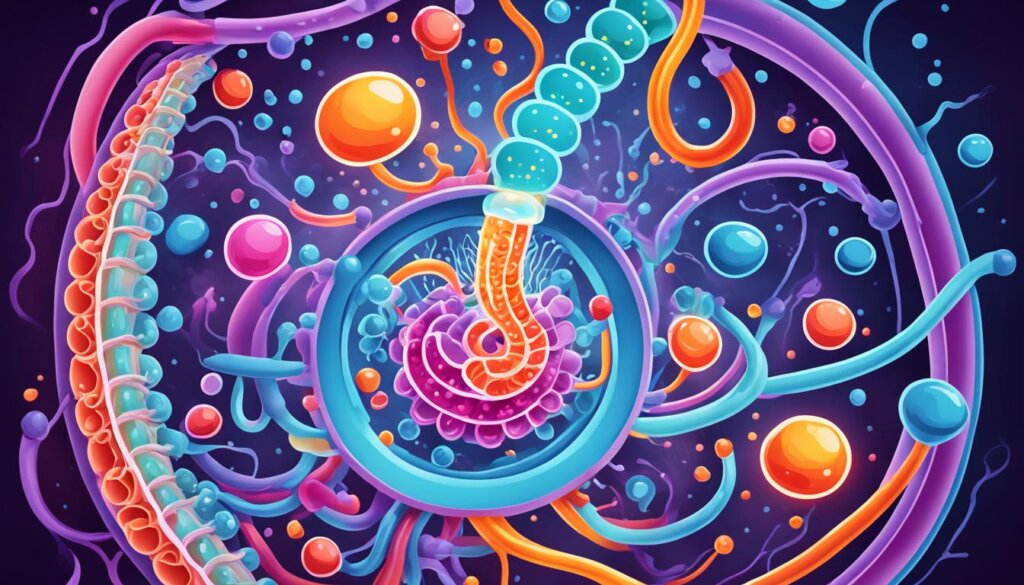
“Persistent gas and bloating can be a sign of an underlying digestive health issue, so it’s important to work closely with your healthcare provider to get to the bottom of the problem.”
Working with your healthcare provider and doing a detailed check-up is the first step to finding relief. It helps you tackle the main cause of your gas and pain.
Dietary Management for Gas Relief
Changing what you eat can help ease gas and gas pains. Foods like beans, broccoli, and whole grains are good for you but can cause gas. Cutting back on these foods might help you feel better. Also, eating less dairy, carbonated drinks, and sugar substitutes can lessen gas.
High-Fiber Foods to Watch Out For
Some foods like oat bran, peas, and fruits have a lot of soluble fiber. This can make you gassy if you’re not used to it. To eat more fiber, try adding one new food each day and drink lots of water. But, some people find that eating too much fiber makes gas worse.
Other Dietary Culprits
Carb-rich foods like fruits, veggies, legumes, dairy, whole grains, and sweeteners can cause gas. Sweeteners like sorbitol and xylitol can also make you feel gassy. Eating too much fat can make bloating worse.
Writing down what you eat and how you feel can help find what causes gas. Doctors or dietitians can make a diet plan just for you. This could mean eating gluten-free, less lactose, less fructose, or low FODMAP.
With careful food choices and help from health experts, you can find ways to manage your gas and pain.
Over-the-Counter Remedies
OTC remedies can help with gas and gas pains. Products like Beano have alpha-galactosidase to help digest carbs that cause gas. For lactose intolerance, Lactaid supplements can ease discomfort.
Simethicone and activated charcoal are used for trapped gas. They might help break up gas bubbles and ease discomfort. Always talk to a healthcare provider before taking any OTC meds or supplements to make sure they’re safe for you.
- Simethicone (Gas-X, Mylanta Gas) can help relieve painful trapped gas quickly
- Activated charcoal tablets, capsules, or powder have been shown to have possible benefits in relieving gas
- Enzyme preparations like Lactaid and Beano are used for lactose intolerance and gas prevention
These OTC remedies may help now, but they don’t fix the real cause of gas. For lasting relief, talk to a healthcare professional to find the root cause.
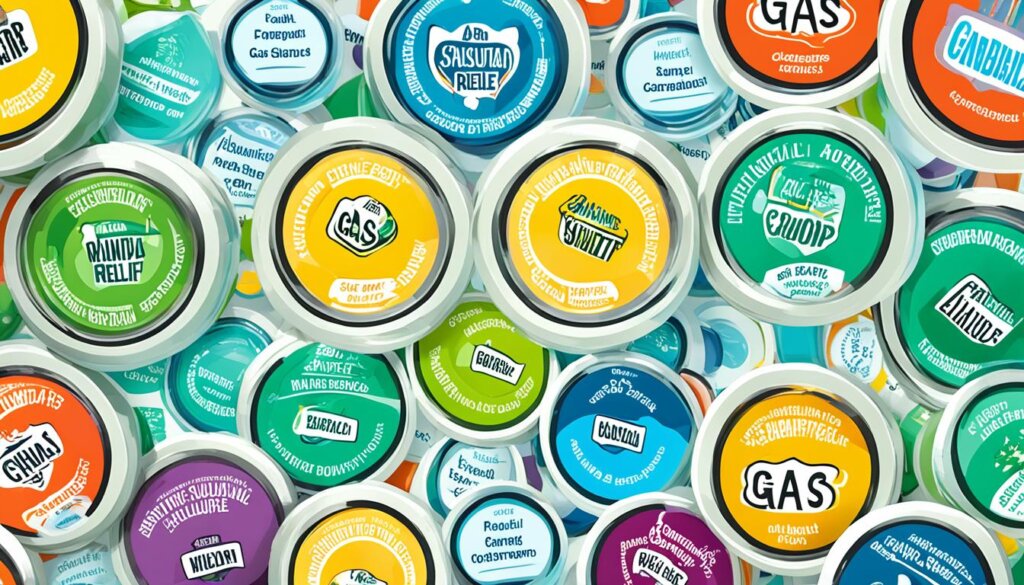
“Considering OTC remedies and supplements for gas relief is advisable after consultation with a healthcare provider.”
Lifestyle Changes for Gas Prevention
Making a few simple changes can help prevent or reduce gas and gas pains. Mindful eating is key – eat smaller, slower meals to avoid swallowing too much air. Avoid chewing gum, drinking through a straw, and eating too fast to cut down on air intake and gas.
Being active can also help move gas through your system. Try walking, biking, or running to help. Good posture and managing stress can also make digestion better and reduce gas.
Eating Habits to Adopt
- Eat smaller, slower meals to avoid swallowing excess air.
- Avoid chewing gum or drinking through a straw to reduce air intake.
- Keep a food diary to find foods that make you gassy.
- Try foods one by one to see what bothers you.
- Use digestive aids like lactase or Beano for tough foods.
Exercise and Other Tips
- Stay active with walking, biking, or running to move gas through your system.
- Good posture helps with digestion and less gas.
- Keep stress low to help your digestion.
By following these tips, you can reduce gas and improve your digestion.
“Paying attention to your eating habits and staying active can go a long way in preventing and managing gas-related issues.”
Lifestyle Factor | Impact on Gas |
|---|---|
Mindful Eating | Reduces air intake and slows digestion, leading to less gas buildup. |
Physical Activity | Promotes movement of gas through the digestive tract. |
Stress Management | Helps maintain healthy digestion and reduces gas-related discomfort. |
When to Seek Medical Attention
Gas and gas pains are common and usually easy to handle with diet and lifestyle changes. If gas pains are severe, don’t stop until they get better. Or if you have other symptoms like bloody stools, losing weight, or changes in how you go to the bathroom, see a doctor. These could mean you have a health issue that needs a check-up and treatment.
Get help right away if you have chest pain, a high fever, severe stomach pain, or bad diarrhea. Also, if your bowel habits change a lot, like having diarrhea or constipation a lot, or if you lose weight without trying, see your doctor.
It’s normal to pass gas 15-21 times a day. But if you have a lot of gas and other ongoing digestive problems, it might mean you have a health issue. This could be things like inflammatory bowel disease, Crohn’s disease, or gastroparesis. In these cases, seeing a doctor is key to finding and fixing the problem.
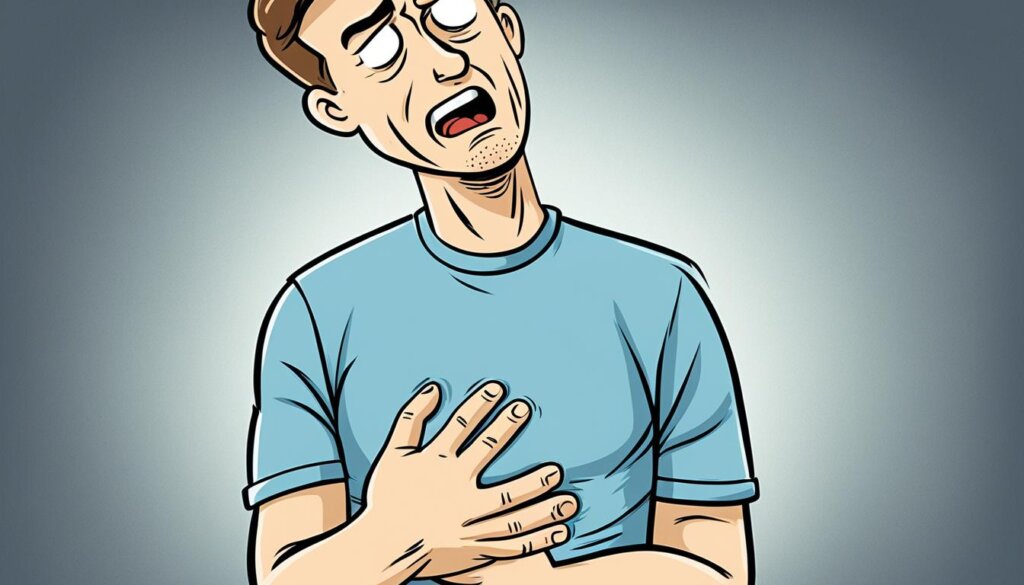
Gas and gas pains can be annoying but are usually normal. But if they’re really bad, don’t stop until they get better. If they keep happening or make life hard, talk to a healthcare professional. They can figure out what’s wrong and help you feel better.
Probiotics and Digestive Health
Keeping your gut microbiome healthy is key for good digestion. Probiotics, good bacteria in your gut, play a big role. Eating foods high in probiotics or taking supplements can help control gas, improve gut health, and ease discomfort.
Studies show probiotics can help with digestion problems. They can ease diarrhea, especially in kids, and help with some stomach issues. They also help keep some bowel diseases in check.
Probiotics might ease IBS symptoms like pain, bloating, and diarrhea. More research is needed, but they look promising for gut health.
Probiotics are usually safe, but some might feel stomach upset or gas at first. People with weak immune systems or recent illnesses should talk to a doctor before taking them.
In the U.S., probiotics are supplements, not medicines. So, they don’t have to pass the same tests for safety and effectiveness. Always talk to a doctor before starting them to get the right kind and amount for you. Stop taking them if you have bad reactions.
Using probiotics wisely can help with digestion issues like gas. With a doctor’s help, you can find the best probiotics for your gut health.
Probiotic Benefits | Potential Risks |
|---|---|
|
|
Always talk to a doctor before adding probiotics to your routine. With professional advice, you can find the right probiotics for your gut health.
“Maintaining a healthy gut microbiome through the strategic use of probiotics can be a valuable tool in managing gas and other digestive issues.”
Managing Chronic Digestive Conditions
If you have chronic digestive issues like irritable bowel syndrome (IBS), celiac disease, or small intestinal bacterial overgrowth (SIBO), you might need a detailed plan. This plan should include diet changes and lifestyle tweaks, plus maybe some medicine or therapy from a doctor. Working with a gut health expert can help make a plan just for you.
IBS can make you feel gassy and bloated. Celiac disease, an autoimmune issue from eating gluten, also causes a lot of gas and discomfort. And SIBO, where there’s too much bacteria in your small intestine, adds to the gas problems.
It’s key to find out why you have gas and pain to manage it well. Your doctor might suggest eating less of some foods or cutting out lactose or gluten, based on your condition. They could also suggest medicines or supplements to ease your symptoms and fix your digestion.
Handling chronic digestive issues takes teamwork between you and your healthcare team. With your doctor’s help, you can make a plan that fits your needs and helps with gas and pain.

Adding probiotics to your daily routine might also help. These are live germs that can balance out the good bacteria in your gut, which might lessen gas and other stomach troubles.
Dealing with chronic digestive issues is a long-term process, and what helps one person might not help another. Be patient, work with your healthcare team, and try different things to find what works best for you.
Conclusion
Gas and gas pains are common issues that can be fixed with diet changes, lifestyle tweaks, and sometimes, doctor help. Knowing what causes them, like swallowing air or how your posture affects digestion, helps you find relief. About 30% of people in the U.S. deal with bloating, but you can stop it with the right steps.
For gas and pain, watch what you eat, especially foods high in fiber or other gas makers. Also, change your eating habits and start exercising to help ease the discomfort. If it gets worse, see a doctor to find out why and get help.
This guide on gas and gas pains covers causes, relief, and prevention. By taking action, you can keep your digestive system healthy and say goodbye to this common problem. With the right steps, you can control your digestive health and live without symptoms.
FAQ
What is gas?
Gas is a normal part of digestion. It happens when bacteria in the intestines break down food that wasn’t fully digested.
What are the common symptoms of gas pains?
Symptoms include stomach cramps, bloating, feeling full, and discomfort in the stomach.
What dietary factors can contribute to increased gas production?
Foods high in fiber, dairy, carbonated drinks, and sugar substitutes can make gas worse.
What medical conditions can lead to excessive gas and gas pains?
Conditions like irritable bowel syndrome, celiac disease, and small intestine bacterial overgrowth can cause a lot of gas and pain.
How can gas and gas pains be diagnosed?
Doctors look at your health history and do a physical check-up first. They might also do tests to find the cause of the gas and pain.
What dietary changes can help manage gas and gas pains?
Cutting down on foods that cause gas helps. It’s best to work with a dietitian or doctor to make a plan that’s right for you.
What over-the-counter remedies can provide relief for gas and gas pains?
Products with alpha-galactosidase, lactase, simethicone, and activated charcoal might help. But always talk to a doctor before trying them.
What lifestyle changes can help prevent gas and gas pains?
Eating smaller meals, avoiding things that make you swallow a lot of air, staying active, and managing stress can help prevent gas and pain.
When should someone seek medical attention for gas and gas pains?
See a doctor if the pain is bad, doesn’t go away, or if you have other symptoms like bloody stools, losing weight, or changes in how often you go to the bathroom.
How can probiotics help with gas and gas pains?
Probiotics can help control gas, improve gut health, and make you feel better from gas-related discomfort.
How can chronic digestive conditions be managed in relation to gas and gas pains?
If you have ongoing digestive issues like IBS, celiac disease, or SIBO, managing gas and pain means making diet changes, changing your lifestyle, and following a doctor’s treatment plan.

